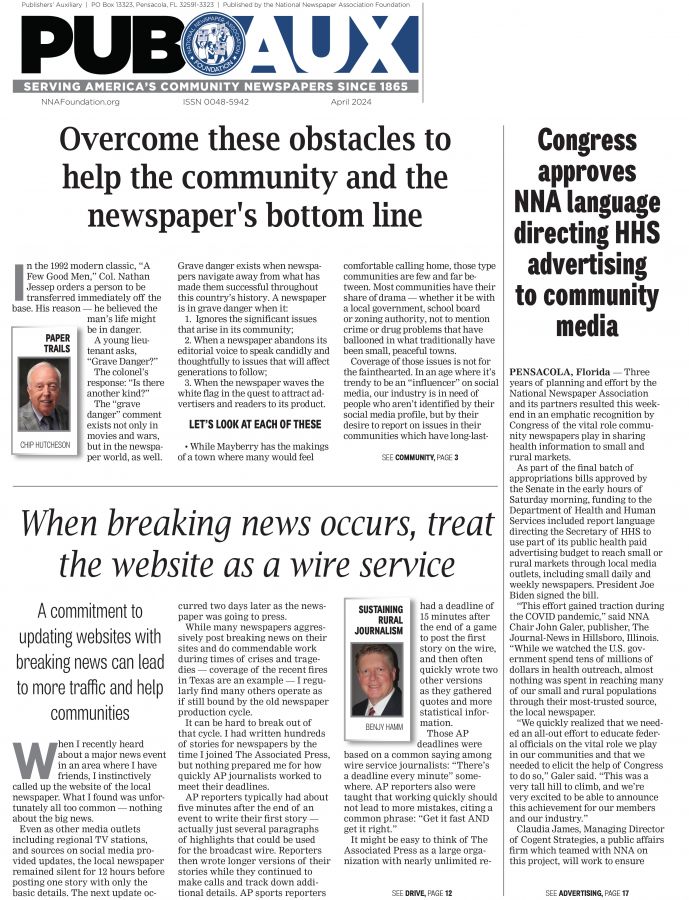In public schools, when should holy days become holidays?
Nov 25, 2014
Editors: This is the "Inside the First Amendment" column normally scheduled to be transmitted on Thursday, Nov. 27. It is being transmitted early in advance of the Thanksgiving holiday.
By Charles C. Haynes
Inside the First Amendment
The school board in Montgomery County, Maryland ignited a national debate earlier this month by voting to eliminate the names of Christian and Jewish religious holidays on the school calendar — while still planning to close schools on those days.
The board's action was in response to the local Muslim community's longstanding request to add at least one Muslim holiday to the list of days when the district's schools would close.
Not surprisingly, the "compromise" — closing on Christian and Jewish holidays, but labeling these days something else — is having the unfortunate effect of making people on all sides mad.
Many Christians and Jews aren't happy to see all recognition of their traditions removed from the calendar. And Muslims aren't satisfied because they still want one of their holy days to be a school holiday.
In other words, the school board achieved little by scrubbing the calendar of religious references. Yom Kippur, Christmas, Passover and Good Friday are still Yom Kippur, Christmas, Passover and Good Friday by any other name. And Muslims continue to feel ignored.
In fairness to school boards facing this issue, there's no solution that will satisfy everyone. And that's because "everyone" now includes people of a growing variety of faiths and beliefs in every region of the country. As religious diversity expands, so will the school calendar dilemma.
The starting point for deciding if and when public schools should close on a religious holiday is the First Amendment. Under the Establishment clause, schools may not close for religious reasons or to accommodate the religious requirements of any faith.
Public schools may only add a religious holiday as a "day off" if, and only if, there is a legitimate secular purpose for doing so — a purpose that is consistent with the educational mission of public schools.
The most obvious secular reason for shutting schools on a religious holiday is absenteeism. If a large number of students and teachers aren't in school, the district can probably justify adding that day to the list of days when schools are closed.
What constitutes a "large number," of course, is a matter of some debate in Montgomery County and in many other school districts. Because schools don't ask students about religious affiliation (and they shouldn't), numbers are hard to come by. The only solid evidence would be a history of high absenteeism on holy days that makes the case for closing schools.
At least one New Jersey school district is currently using 15% or higher of anticipated student absences on a particular day as the threshold for considering whether to add a religious holiday to the list of days the schools will close. It's hard to draw a bright line absent more direction from the courts, but 15% or higher is likely pass constitutional muster.
But for many minority religious communities, focusing solely on numbers seems a bit unfair. After all, Christians — and in many districts Jews — have long been accommodated usually without much gathering of data or counting of heads.
Christian holidays, of course, were baked into the school calendar from the founding of public schools — including Sunday, a day of worship for most Christian groups. More recently, Jewish holidays have made the list for school closings, especially in communities with significant Jewish populations.
But in America today, expanding religious diversity makes it impractical to keep adding religious holidays to the school calendar without strong evidence that classes can't function well on those days. And even with such evidence, schools can't keep adding days off without seriously undermining their educational mission.
All public schools can, however, accommodate students of all faiths by having a clear policy allowing every student a reasonable number of excused absences for religious observance — without penalty. And schools can level the playing somewhat by trying to avoid scheduling major tests and events on religious holidays that are celebrated widely in their community.
There is no do-over when it comes to some aspects of our history. Christmas Day, for example, is now a national — and therefore secular — holiday. And Sunday may be designated at a secular "day of rest" by government, according to the Supreme Court.
That's all the more reason for local public school officials to do what they can to meet the religious needs and requirements of religious minorities in their communities.
Schools can't close for every religious holy day, but they can find ways to make sure that students of all faiths and none are treated with fairness and respect.
Charles C. Haynes is director of the Religious Freedom Center of the Newseum Institute, 555 Pennsylvania Ave., N.W., Washington, DC 20001. Web: www.religiousfreedomcenter.org Email: chaynes@newseum.org







